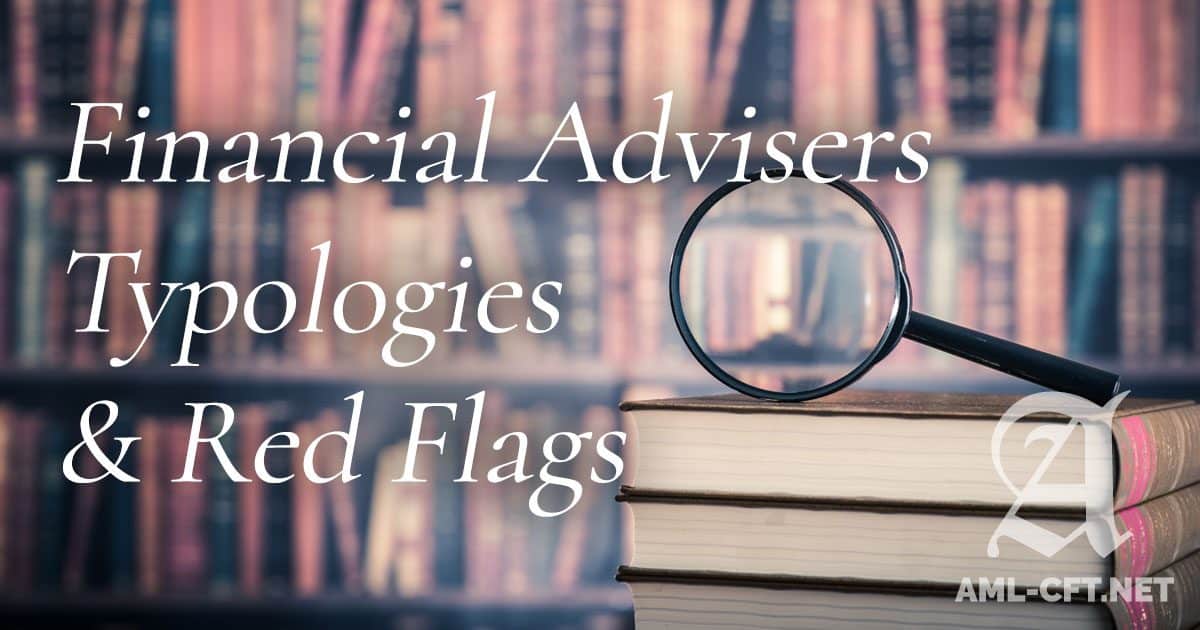
Explore the Library
Transactions Which Do Not Make Economic Sense
- Transactions that cannot be reconciled with the usual activities of the customer, for example switching from investing predominantly in blue chip stocks to penny stocks.
- A customer relationship with the financial adviser where the customer carries out frequent large transactions which are beyond the customer’s apparent financial means (for example, customer requests for a single premium contract with large sum assured).
- Transactions where the nature, size or frequency appears unusual, for example, a sudden request for a significant purchase of a lump sum contract from an existing customer whose current contracts are small and of regular payment only.
- Transactions in which funds are received by way of a third party cheque, especially where there is no apparent connection between the third party and the customer.
- Transactions which, without plausible reason, result in the intensive use of what was previously a relatively inactive account.
- Request by a customer for financial advisory services where the source of funds is unclear or not consistent with the customer’s apparent standing.
Transactions Involving Large Amounts of Cash
- Payments made via large amounts of cash. A guideline to what constitutes a large or substantial cash amount would be a cash amount exceeding S$20,000 (or its equivalent in any currency).
- Customers whose funds contain counterfeit notes or forged instruments.
- Transactions in which funds are received from or paid to a customer’s bank account in a financial haven, or in foreign currency, especially when such transactions are not consistent with the customer’s transaction history.
- Overpayment of premiums with a request to refund the excess to a third party or to a bank account held in a different country.
Transactions Involving Accounts of the Customer with the Financial Advisers
- Paying in large third party cheques endorsed in favour of the customer in settlement for investment services rendered, or for other financial services provided.
- Substantial increases in deposits of cash or negotiable instruments by a professional firm or company, using customer accounts or in-house company or trust accounts, especially if the deposits are promptly transferred between other customer company and trust accounts.
- An account operated in the name of an offshore company with structured movement of funds.
- Transfers of funds from various third parties into an account, which is inconsistent with the nature of the customer’s business.
Transactions Involving Transfers Abroad
- A customer introduced by an overseas FI, affiliate or other customer, where both the customer and introducer are based in countries or jurisdictions associated with (a) the production, processing or marketing of narcotics or other illegal drugs; or (b) other criminal conduct.
- Large and regular injection of funds that cannot be clearly identified as bona fide transactions, from and to countries associated with a) the production, processing or marketing of narcotics or other illegal drugs or b) other criminal conduct.
Transactions Involving Unidentified Parties
- A customer, who is a natural person, for whom verification of identity proves unusually difficult and who is reluctant to provide details.
- A customer, which is a corporation, where there are difficulties and delays in obtaining copies of the financial accounts or other documents of incorporation.
- Assignment of a policy to unidentified third parties and for which no plausible reasons could be ascertained.
- A number of policies taken out by the same customer for low premiums, each purchased with cash and then cancelled with return of premiums to a third party.
Tax Crimes Related Transactions
- Negative tax-related reports from the media or credible information sources.
- Unconvincing or unclear purpose or motivation for having accounts opened in Singapore
- Reinvestment of funds back into the original country or jurisdiction after being transferred to another country or jurisdiction, often a tax haven with poor track record on CDD or record keeping requirements.
- Life insurance solutions used for illegal purposes.
- Accounts managed by external asset managers who may not be adequately regulated and supervised.
- Purchase or sale of large amounts of precious metals by a customer which is not in line with his business or background.
- Purchase of bank cheques on a large scale by an interim customer.
Other Types of Transactions
- Account activity is not commensurate with the customer’s known profile (e.g. age, occupation, income).
- Transactions with countries or entities that are reported to be associated with terrorism activities or with persons that have been designated as terrorists.
- Frequent changes to the address or authorised signatories.
- A large amount of funds is received and immediately used as collateral for investment.
- When a young person (aged about 17-26) opens an account and either withdraws or transfers the funds within a short period, which could be an indication of terrorism financing.
- When a person receives funds from a religious or charitable organisation and utilises the funds for purchase of assets or transfers out the funds within a relatively short period.
- The customer uses intermediaries which are not subject to adequate AML/CFT laws.
- Transactions that are suspected to be in violation of another country’s foreign exchange laws and regulations.

Leave a Reply